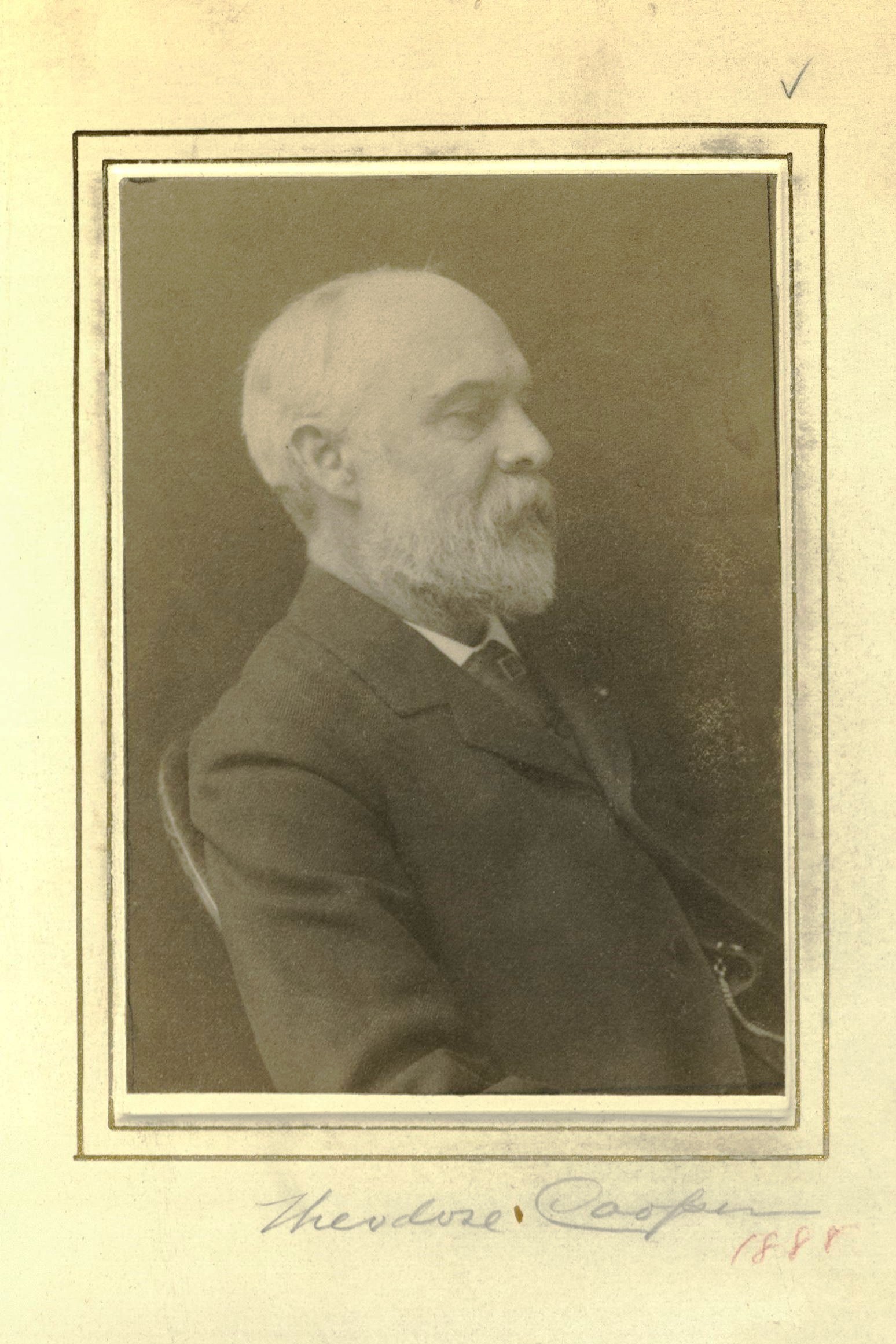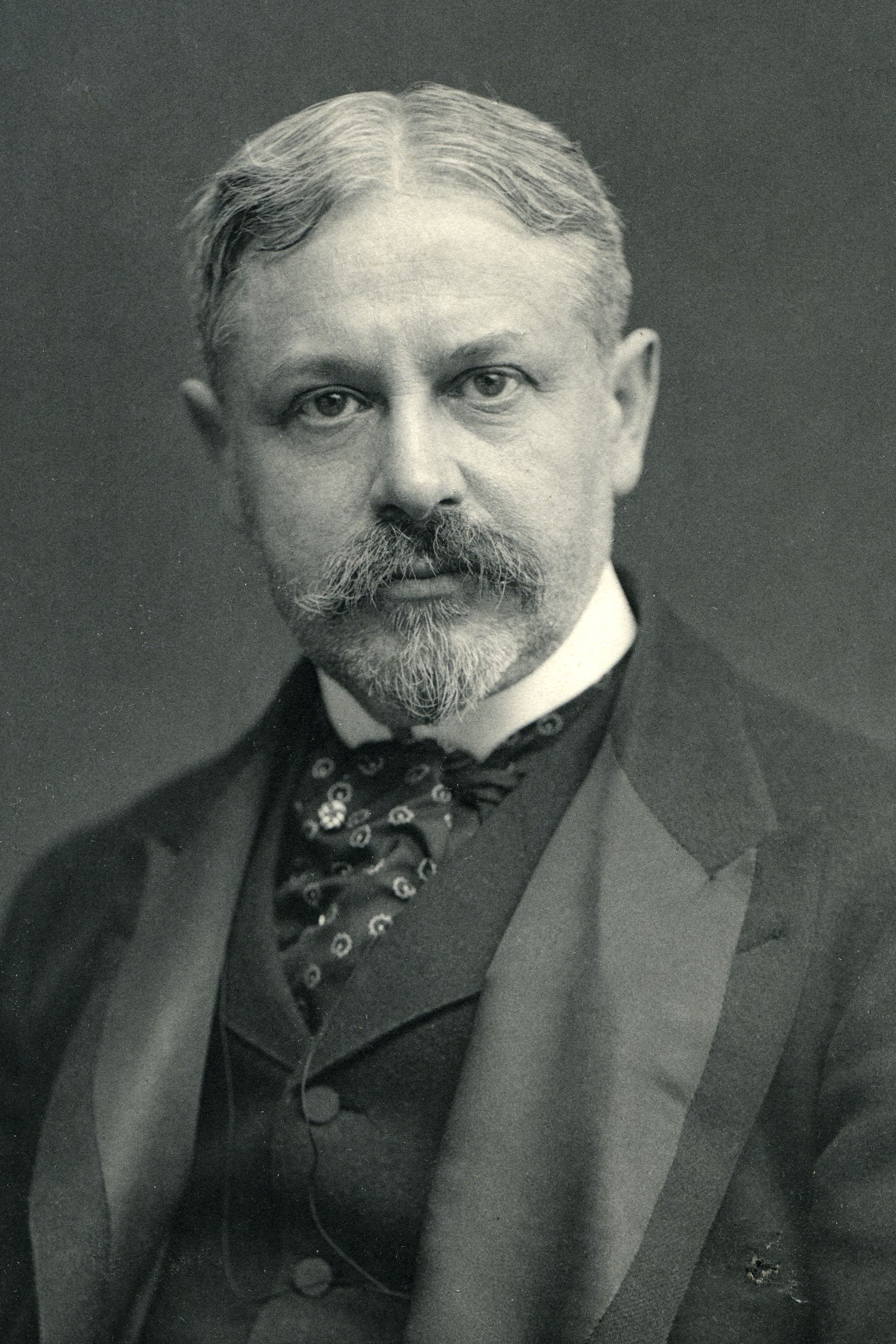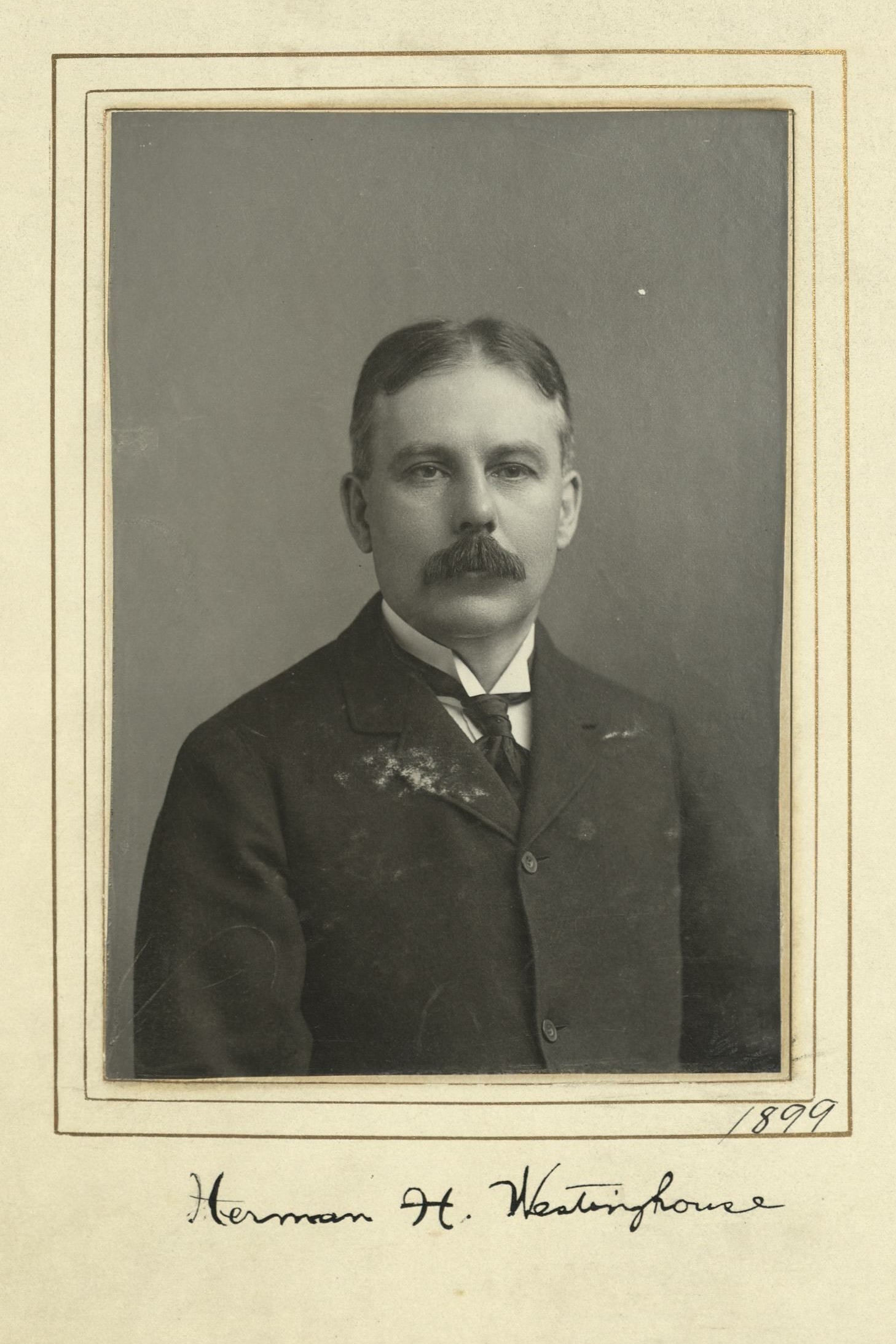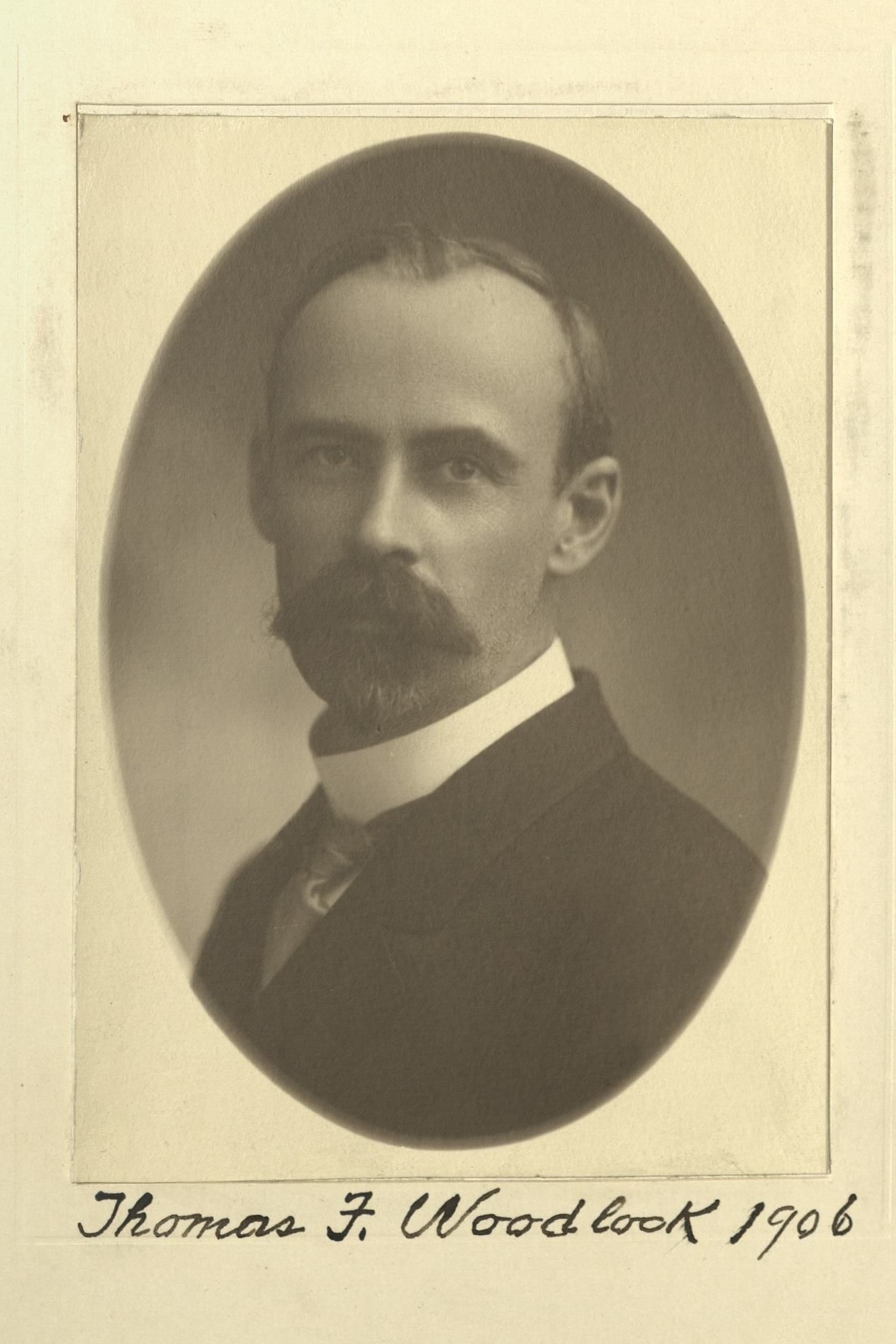Member Directory,
1847 - 1922
Henry G. Prout
Civil Engineer
Centurion, 1892–1927
Theodore Cooper and Frank Fowler
Fairfax County, Virginia
Summit, New Jersey
Age forty-seven
Hillside, New Jersey

Century Memorial
Fellow-Centurions who talked casually with Henry Goslee Prout in reading-room or library, would hardly have guessed at the background of his life. Prout never talked about himself. There was little in the trim, dapper figure and slightly reserved manner to suggest even the picture of a soldier who served through the Army of the Potomac’s campaigns or the explorer of the Yellowstone when that nowadays familiar government park was a remote and inaccessible wilderness, hardly known except through Indian superstition. Not many listeners to the Colonel’s quiet and modest comment on questions of the day were aware that they were exchanging views with the only American who ever administered the supreme civil and military government of a vast African province; the captain who reconnoitered the Soudan for “Chinese” Gordon, and the daring leader who achieved the impossible by transporting an 80-foot steamer sixty miles through an equatorial jungle, on runners and on the backs of natives, to navigate the solitary lake which Stanley and Livingston discovered.
It was not the least unusual fact in Prout’s career that this series of achievements should have occurred before he reached the age of thirty-three. The chapter of African adventure was closed as long ago as 1878, and our modest colonel presently took his place in the field of editorial discussion, where the transportation question, with which he had wrestled personally in Darkest Africa, was now the outstanding problem in America. Prout was not one of those men on whom the harness fits awkwardly in passing from personal solution of immediately urgent problems to detached editorial discussion of problems yet unsolved. He took up the editorial pen at the moment when our hurriedly-constructed and imperfectly-financed transportation system was showing premonitory signs of the plunge into bankruptcy which followed 1893; he continued to hold it during the subsequent period, first of slow and painful reconstruction, then of spectacular prosperity and expansion. During his sixteen years with the Railroad Gazette, Prout had to deal editorially with every aspect of the question—the suicidal “rate wars” and the abortive “gentlemen’s agreements,” the rise of the Interstate Commerce Commission, the naming of receivers for one-fourth of the country’s railway capitalization, the era of assessment and “reorganizing,” the “railway mania” of 1901, the transformation of Union Pacific from a “streak of rust” into one of the richest corporations in the world, the shift in Northern Pacific’s status from that of an economic cripple, whose stock nobody wanted at 25 cents a $100 share, to that of an enterprise for possession of which, only five years later, capitalists of unlimited wealth were bidding against each other and whose shares went to $1,000 in Wall Street.
On all this bewildering panorama Prout looked with the calm and philosophic judgment of the expert. His concern was not with the unhappy past but with the future. He may be fairly said to have mapped out the course which rehabilitation eventually pursued, and his vision of transportation possibilities stretched beyond internal problems. It is a not unwarranted tradition of his old colleagues that the reading on the floor of the United States Senate, of an article by Prout on the proper site for an interoceanic canal, settled the question of Panama versus Nicaragua. These editorial arguments were not the less convincing because of their directness, restraint and simplicity of style. There have been few more useful words of counsel to editorial writers on controverted topics than Prout’s advice to a young associate that he “keep cool and remember the eloquence of under-statement.”
Alexander Dana Noyes
1928 Century Association Yearbook
Related Members
Member Directory Home-
 Theodore CooperCivil EngineerCenturion, 1888–1919
Theodore CooperCivil EngineerCenturion, 1888–1919 -
 Frank FowlerArtistCenturion, 1888–1910
Frank FowlerArtistCenturion, 1888–1910 -
 Edwin Musser HerrEngineer/ManufacturerCenturion, 1910–1913
Edwin Musser HerrEngineer/ManufacturerCenturion, 1910–1913 -
 John ThomsonCivil EngineerCenturion, 1897–1915
John ThomsonCivil EngineerCenturion, 1897–1915 -
 Herman H. WestinghouseGeneral Manager, Westinghouse Air Brake CompanyCenturion, 1899–1933
Herman H. WestinghouseGeneral Manager, Westinghouse Air Brake CompanyCenturion, 1899–1933 -
 Thomas F. WoodlockJournalistCenturion, 1906–1945
Thomas F. WoodlockJournalistCenturion, 1906–1945




